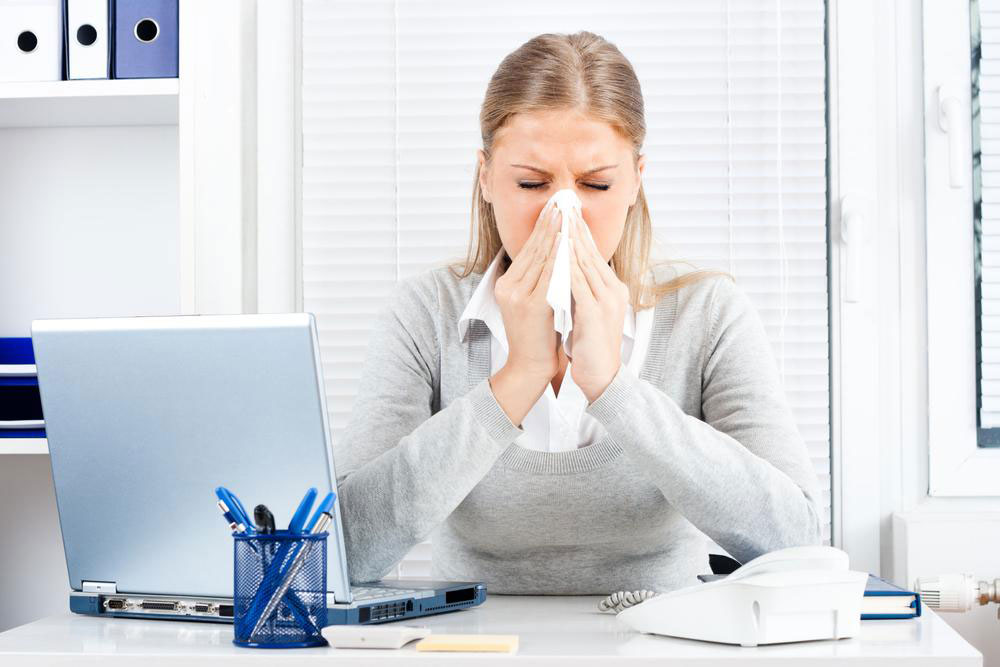Comprehensive Strategies for Effective Allergy Management
This comprehensive guide offers proven strategies to manage allergies effectively. From medications like nasal sprays, antihistamines, and corticosteroids to natural remedies like saline irrigation, the article covers all essential approaches. Long-term solutions such as immunotherapy and allergen avoidance are discussed, emphasizing prevention and safety. Learn how to handle severe reactions with emergency epinephrine and minimize symptoms through personalized treatment plans. This resource aims to provide allergy sufferers with practical advice to improve their quality of life through effective symptom control and proactive management.

Proven Methods to Relieve and Control Allergic Reactions
Allergies are a common health concern affecting millions globally, caused by the immune system overreacting to normally harmless substances known as allergens. These reactions can manifest in a variety of symptoms, including sneezing, coughing, nasal congestion, watery eyes, and skin irritations. While some individuals experience mild symptoms manageable with simple remedies, others may suffer from severe or chronic allergic responses that require professional medical intervention. Effective allergy management involves a combination of lifestyle adjustments, medications, and specialized treatments to minimize discomfort and prevent serious complications.
In this comprehensive guide, we explore an array of strategies and therapies that can help individuals cope with allergies more effectively, enabling a better quality of life through symptom relief and long-term control.
Nasal Sprays and Decongestants: Fast-Acting Relief
For quick relief from nasal congestion, sore throat, and persistent coughs, nasal sprays and decongestant medications are often recommended. These come in various forms, including nasal sprays, oral pills, and liquids, and effectively reduce swelling in the nasal passages, allowing easier airflow. Saline nasal sprays and rinses also help clear out mucus and allergens from the sinuses. It is important to use decongestants cautiously—generally not exceeding three consecutive days—to avoid rebound congestion, which can worsen symptoms.
Saline Nasal Irrigation: Natural and Effective
Saline nasal irrigation is a safe, natural method for reducing allergen buildup in the sinuses. By flushing out irritants, it can significantly decrease allergy symptoms. A simple solution involves mixing three tablespoons of iodine-free salt with one tablespoon of boiled, cooled water. Combine this with about 8 ounces of hot water and use a rinsing device, such as a neti pot or bulb syringe, to irrigate the nasal passages. Regular use can alleviate congestion, reduce inflammation, and promote nasal hygiene. However, if symptoms persist despite home remedies, consulting a healthcare professional is essential for further diagnosis and tailored treatment plans.
Allergy Immunotherapy: Long-Term Management
When allergies persist or significantly impair daily life, allergy immunotherapy offers a promising solution. This treatment involves the gradual introduction of small doses of allergens via injections or sublingual tablets, with the goal of desensitizing the immune system. Immunotherapy can be particularly effective for pollen allergies, insect stings, or dust mites, and is usually administered over several years. Over time, it can lead to reduced sensitivity, fewer symptoms, and a decreased need for medications. Patients considering immunotherapy should undergo a comprehensive assessment by an allergist or immunologist to determine suitability and develop a customized regimen.
Emergency Epinephrine: Crucial for Severe Allergic Reactions
In cases of life-threatening allergic reactions—or anaphylaxis—immediate intervention is vital. Carriers of known severe allergies are advised to always carry an epinephrine auto-injector, commonly known by brand names like EpiPen. Epinephrine helps rapidly reverse airway constriction, swelling, and other critical symptoms. Proper training in auto-injector use is essential, and individuals should ensure their device is always accessible, especially when traveling or dining out. After administering epinephrine, prompt medical attention is necessary to monitor and manage potential biphasic reactions or subsequent symptoms.
Corticosteroid Topical Agents: Reducing Skin and Nasal Symptoms
Many allergic skin conditions—such as rashes, eczema, or dermatitis—respond well to corticosteroid creams or ointments. These topical agents help reduce inflammation and itching when applied early in the course of a skin reaction. Nasal corticosteroids are also widely used to treat allergic rhinitis by decreasing inflammation in the nasal passages. It’s important to follow medical advice regarding dosage and duration of use to prevent side effects like skin thinning or nasal irritation. If symptoms persist despite topical treatment, seeking professional guidance is recommended.
Medicinal Treatments: Customized Allergy Relief
Depending on the specific allergy, healthcare providers may prescribe various medications to manage symptoms effectively. These include antihistamines, leukotriene receptor antagonists, decongestants, eye drops, and corticosteroids. Each medication targets different aspects of allergic responses, and a personalized treatment plan enables better symptom control. For example, antihistamines like loratadine or cetirizine are popular for reducing sneezing and itching, while nasal sprays provide localized relief for nasal congestion. Regular consultation with an allergist can optimize therapy and enhance overall allergy management.
Oral Steroids: Managing Severe Allergic Responses
In severe allergic cases, such as persistent asthma or extensive skin reactions, short courses of oral corticosteroids may be prescribed. These powerful medications can rapidly reduce inflammation and alleviate symptoms. However, due to potential side effects—like weight gain, mood changes, and susceptibility to infections—oral steroids should be used under strict medical supervision and typically for limited durations. Long-term reliance on oral steroids is generally avoided unless absolutely necessary, with healthcare providers weighing risks and benefits before initiating therapy.
Mast Cell Stabilizers: Preventive Allergy Control
Mast cell stabilizers, available as eye drops and nasal sprays, work by preventing the release of histamines from immune cells, thus reducing allergy symptoms before they start. They are particularly effective in treating watery, itchy eyes, nasal congestion, and runny nose. Regular use as prescribed can help in avoiding the onset of allergic flare-ups, especially in individuals with well-known triggers such as pollen or pet dander. For best results, these medications should be part of a comprehensive allergy management plan.
Allergen Avoidance Strategies: The Most Effective Prevention
One of the most reliable methods to prevent allergy symptoms is to identify and avoid exposure to known allergens. Conducting allergy testing can help pinpoint specific triggers. Once identified, individuals can implement measures such as using HEPA air filters, keeping windows closed during high pollen seasons, frequent cleaning to remove dust, and avoiding known irritants like tobacco smoke or pet dander. Creating allergen-free environments, both at home and work, is crucial in reducing the frequency and severity of allergic episodes. Prevention through avoidance remains the cornerstone of allergy management.
Proper allergy management involves a combination of these strategies tailored to individual needs. Collaborating with healthcare professionals ensures a comprehensive approach that minimizes symptoms, enhances quality of life, and reduces the risk of complications. With consistent application of medical and lifestyle interventions, those affected by allergies can regain control and enjoy a more comfortable life.





